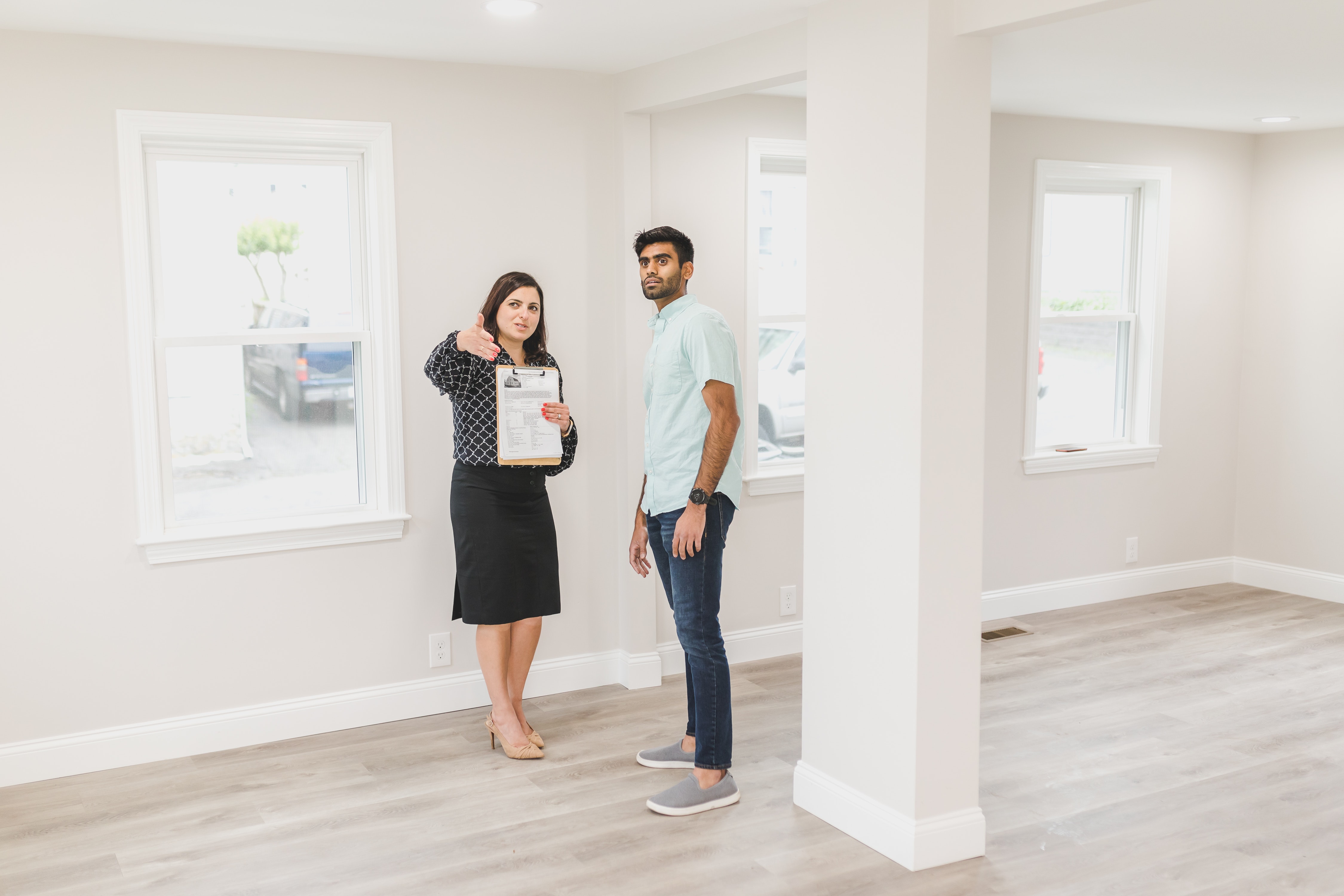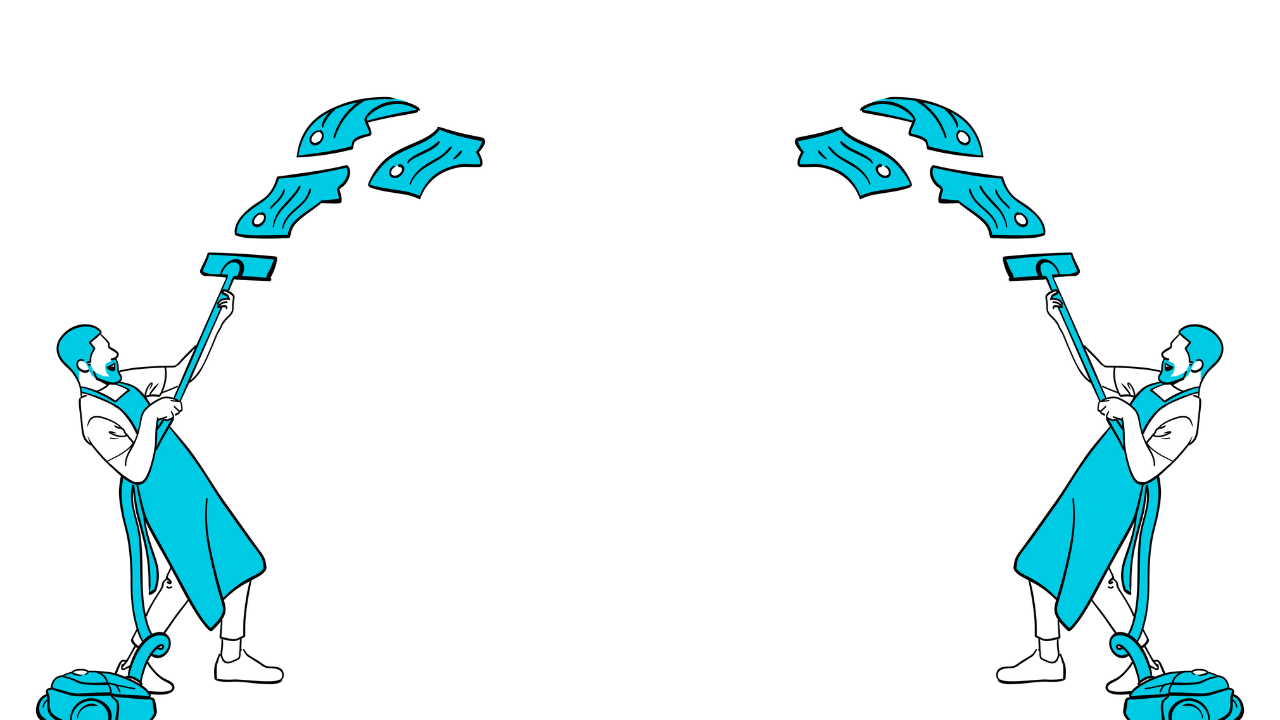Right now, it may seem like there’s no end in sight for the coronavirus pandemic. As real estate agents, most of us have never dealt with something that’s so dramatically impacted our ability to do business.
But the good news is, as devastating as this virus is, its global impact will come to an end. And when that time comes, the housing market should rebound, as it has after other pandemics.
While a lot of sellers will be eager to jump right back in and put their homes on the market, others will need more convincing.
Let’s talk about how to overcome some of the possible objections to listing after the coronavirus.
Objection #1: “I want to wait to see how the market is doing.”
There is likely to be a level of uncertainty when all of us emerge from this pandemic. People who lost their jobs may still be trying to find new ones — or hoping their previous employers rehire them. Restaurants and stores that had to shutter during the crisis may or may not be able to reopen. Homeowners will feel that trepidation and may want to wait before making what they assume is a risky decision.
Here’s how to respond to their concerns.
“You’ll miss out on the hot selling season.”
Regardless of the post-pandemic climate, we’re still heading into the hot selling season, when most sellers want to take advantage of the warmer weather — and an increase in the number of buyers looking to purchase.
If sellers wait too long to list, they’ll miss out on the first wave of buyers eager to find a home now that they can venture outdoors again.
“If you don’t list your home, it won’t sell.”
There’s a saying that goes, “Inaction is the enemy of progress.”
Quite simply, if sellers don’t put their homes on the market, buyers won’t see them, and they won’t sell. Even if they aren’t in a hurry to sell, homeowners have nothing to lose by putting their homes on the market to see if they do.
And If they are in a hurry to sell, that’s even more reason to list immediately. Waiting could cost homeowners more money than they’ve already lost, especially if their home is currently vacant and they’re paying two mortgages.
Objection #2: “I won’t be able to get as much money for my home right now.”
True, home prices have taken a hit during the pandemic, as desperate sellers try to appeal to the buyers still willing to buy, but when the pandemic ends, pent-up buyer demand should bring them back to pre-pandemic levels.
Unfortunately, you can’t expect your prospects to closely follow home pricing trends. That’s why you have to educate them or convince them why now is the best time to sell.
Here’s how to respond to their concerns.
“Check out these home prices before and after coronavirus.”
Find comparable homes that sold before the pandemic and ones that just sold. Look for homes that sold for similar prices to demonstrate that home prices haven’t taken a significant hit in your area.
“Even if you get less for your current home, you’ll save money on your next one.”
If prices do take a more noticeable hit, sellers who are looking to buy a new home can actually benefit from the lower prices (not to mention low interest rates). If they’re planning to move to a larger or more expensive home, the amount they save on their next home could be significantly more than the amount they would have recouped on their own sale in a better market.
“The price you get for your home largely depends on how it’s marketed.”
This is the perfect time to lean on the content in your books. Your book provides examples of times seemingly identical homes have sold for more money because they were staged or had better-quality photos. Explain how you’ll specifically market to the right buyers. Use your book to prove you’re an expert at selling homes for more money, and sellers will have more confidence trusting you to list theirs.
Objection #3: “There won’t be enough buyers willing to buy my home.”
This objection is easy to overcome because you can back up your response with data.
“Buyer demand is actually very high.”
Mortgage rates remain at historic lows and are likely to stay below 4 percent.
Before the coronavirus, there was an overabundance of buyer demand and not enough homes on the market. Even if some of those buyers back out due to changed financial circumstances, there will be plenty of buyers left who still want to own a home and take advantage of low interest rates.
Colleen Souza, an Authorify member, has this to say about home buyers emerging from the pandemic.
“Even with this blip that we're going to have here for a few months, with all the changes with the virus, a lot of them have a ton of money saved and they are ready to buy homes, and they are a large population,” Colleen says. “So they're going to start jumping into the housing market, continue to, and it's going to continue to bring lots of buyers to the forefront.”
“I recently spoke to my lender, and he/she says rates will remain at historic lows, which means buyer demand will remain high.”
Lean on your lending partners. Instead of simply giving your leads your own predictions or insights about the housing market, give them expert input from real mortgage lenders about current market trends. If possible, call up your lending partner when you’re meeting with potential sellers, or get them to record videos ahead of time sharing their expertise. Not only will their input give your sellers confidence in buyer demand, but it also proves you’ve got a top-notch team to back you up.
Plus, your lending partners just gave themselves a big advantage with your potential clients if they are also purchasing a new home in the area.
“Check out X number of houses that just went under contract in your area.”
There’s no easier way to overcome this objection than by (politely) proving it wrong. Show your potential clients all of the homes that have gone under contract in the last day, week, or month — depending on the size of your market.
If you can show home sellers that buyers are in fact making offers on homes, you can overcome their doubts and win listings.
Objection #4: “I’m still scared to let strangers into my home.”
Even once we get the all clear to resume life as (mostly) normal, some people will still be hesitant and overcautious. The key is not to downplay their fears or pretend to be an infectious disease expert.
Instead, focus on what you can do to overcome those fears.
“We will take extra precautions to make sure your home is safe.”
April Hunter, another Authorify member, has been putting together sanitation kits for her sellers, including gloves and disinfectant wipes that can be left in the home for showings. She also reassures people that agents must adhere to a strict code of ethics that won’t allow them to bring visibly sick people into other peoples’ homes.
“I do have a couple of listing appointments. I've been having them send me the photos. I've been having them send me videos. I'm running comparables. I can send them to them, a CMA, and then we can get on Zoom and we can share screen. And I let them know, ‘Hey, we have DocuSign. You don't have to leave your home. …We can still get you professional photos done. You don't have to be there.”
“I will screen all buyers ahead of time.”
Colleen has also been taking extra precautions to put her sellers at ease. She is pre-screening and limiting the number of buyers who go into a home at any time. She and her husband, Bryan, are also currently attending all showings.
“We're going to ask adults to hold the children's hands. ...We're going to ask them if they limit the touching of surfaces,” Colleen says. “We'll have most of the doors open for people already, and all the lights will be on.
All of these precautions may not be necessary after the restrictions are lifted, but the point is, speak to your prospects about ways to make them feel comfortable enough to move forward and work with you.
Objection #5: “We are trying to save money and sell FSBO.”
If you’ve ever tried to list FSBOs before, you know you won’t convert them using traditional sales tactics. Working with FSBOs is about building trust and setting yourself apart from the dozens — or even hundreds — of other Realtors calling them.
In circumstances like these, it’s even more important to be sympathetic and understanding. Your book is a great hands-off way to prove your value to FSBOs without coming on too strong.
“If you are planning on selling on your own, let me give you a copy of my book to help you through your sale.”
OR
“Check out my book that shows you how to sell your home for more money in less time.”
If FSBOs are serious about wanting to make more money on their home sales, your book proves to them the value you bring to the table — and shows them how much work they have ahead of themselves if they choose to sell alone.
If the sellers are on the fence about working with an agent, rely on real statistics to convince them that working with you is the wiser — and more lucrative — decision.
Include this information somewhere in your presentation:
“According to research from the National Association of Realtors, the typical FSBO home sold for $200,000 compared to $265,500 for agent-assisted home sales.”
Objection #6: "I had my home on the market during the pandemic and it didn’t sell. I’m afraid it won’t sell again."
It’s important that these sellers understand the coronavirus market isn’t a normal market. But you also have to be sympathetic, hear out their concerns, and help the sellers overcome them.
“The virus is absolutely to blame for your home not selling last time. I don’t want you to miss out on the hot selling season, where your home is much more likely to sell.”
There’s a very good chance many of the homes expiring during the coronavirus would have sold at any other time. Show them examples of comparable homes that are going under contract in your area, and point out all of the positive features of their home that buyers will love.
“I specialize in selling homes that didn’t sell before. I will put together a top-notch marketing plan to get your home in front of the most buyers possible.”
Show them examples (if you have them) of other expired homes you’ve sold in the past. Show them quality photos, 3D tour options, staging ideas, and anything else that will get them off the fence.
Overcome any objection with your book.
“Take a look at my book that shows you how to sell homes in any market.”
Use your books to your advantage. Show potential clients the value you bring to any transaction. People put their trust in experts for everything from medical advice to plumbing issues. Show people there is a science to selling in any market — and you literally wrote the book on how to do it.
If you’re not currently a member and would like to find out more about our book program, visit Authorify.com/how-it-works.
What can you do right now to prepare?
While our ability to sell homes is hindered, now is the best time to build a pipeline of listings. Think of this opportunity as your chance to get ahead of other agents who may be “waiting out the storm.”
Colleen and Bryan worked through the Great Recession and came out stronger than ever because they spent time forming valuable relationships that turned into listings, referrals and repeat business.
“It's never about just what business is going on right now, right? Otherwise, we'll starve. It has to be the business that we're doing in three months, the business that we're doing in six months. What's in your pipeline? What's in the hopper?”
April, who also owns her own brokerage, has been giving this advice to the agents on her team.
“I tell them... ‘Now is the time, more than ever, to stay top of mind. Now is the time when you must follow up. Now is the time. ...I don't want you to go extinct.’ Especially for the people who just started this, now is the time to stay in contact. If you have books, send your books. If you have any knowledge, send them text messages, use your social media outlets, DM them, send them messages. Just let them know you're thinking about them.
“This is not the time to be a couch potato,” April says. “This is not the time to be comfortable because I promise to you — if you do that — six months from now, you will probably not be in the business.”












